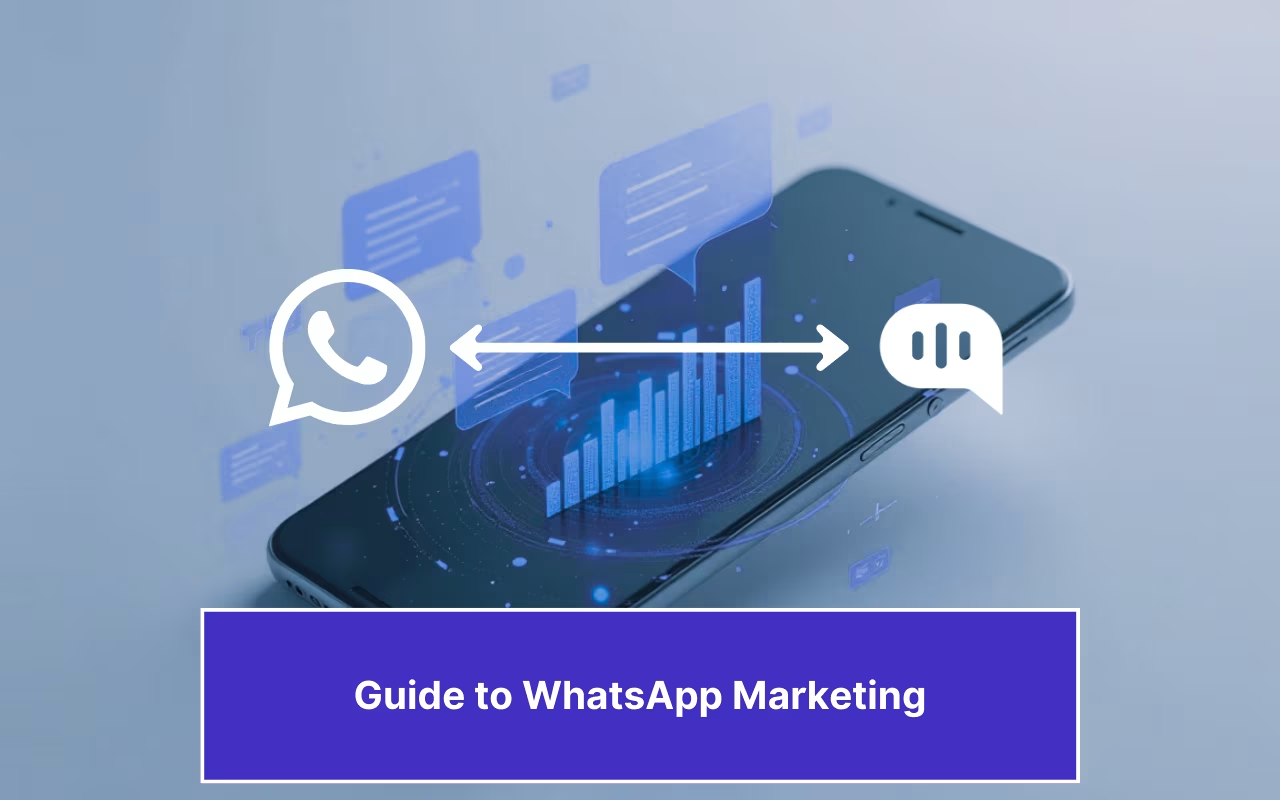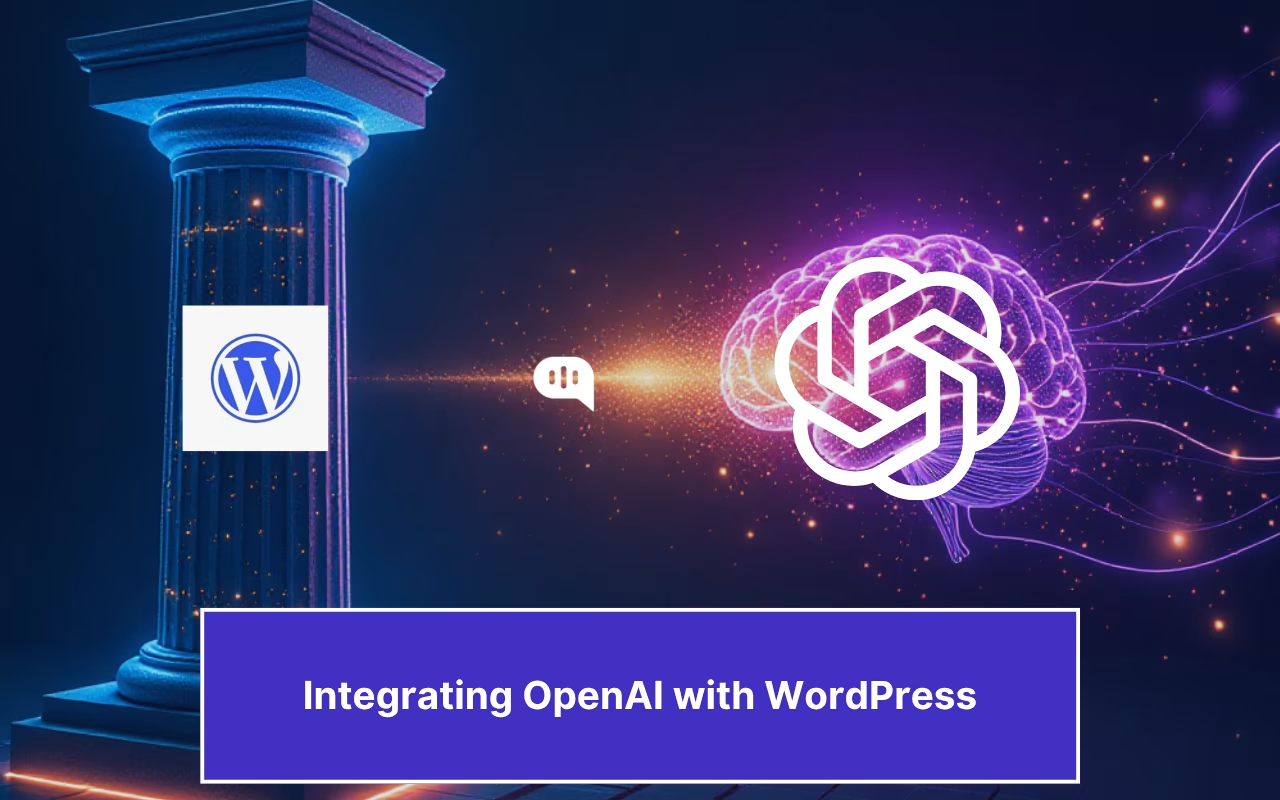Updated on March 18, 2025

In a recent MIT Technology Review article, Will Fritcher, the Deputy Chief Client Officer at Teleperformance, discussed the burgeoning AI trend. He said, “Enterprises are trying to rush to figure out how to implement or incorporate generative AI into their business to gain efficiencies.”

This rush for generative AI isn’t surprising. After all, generative AI can boost productivity by a manifold. In Fritcher’s firm, for example, AI can review all customer interactions (when a pure human workforce could only review 2-4% of all conversations).
Enterprises like Teleperformance have tuned into AI-powered services to streamline and navigate customer service challenges. This is because of the overwhelming volume of support tickets that the function deals with and the repetitive problems of employee attrition.
AI-powered email ticketing systems fit right into this paradigm.
Traditional email inboxes offer few, if any, benefits to customer support teams. Shared inboxes and AI-directed email based ticketing system are being used to mend these workflows. So, in this article, we will look at some of the benefits of these systems and discuss how they can change your workflow. We’re going to cover:
1. What are AI-Powered Email Ticketing Systems?
2. How do Email Ticketing Systems help Customer Support?
3. How can an AI-Powered Email Ticketing System Change Customer Support?
4. How to Prepare Your Workforce for Email Ticketing Systems?
5. Conclusion

What is an AI-Powered Email Ticketing System?
AI-powered email ticketing system is an AI interface that understands and categorizes the emails you receive, and create tickets if required. It can also categorize and streamline your support inbox.
Since your representatives no longer manually categorize emails, the number of errors is reduced. These ticketing systems also assign the ticket to the appropriate available agent, removing the guesswork from the ticket assignment process altogether.
How do AI-Powered Email Ticketing Systems Work?

While different email based ticketing systems have different capabilities, the core principle around it is the same. The workflow is like this:
1. Ticket Creation – A ticket is created whenever a customer raises a query in your inbox.
2. Categorization and Prioritization – Once created, the AI extracts and categorizes different data points (called entities) from the incoming message. AI can understand customer sentiment and the difficulty of the given query using Natural Language Processing, so it can also prioritize the tickets.
3. Assignment – The AI sends the answer for simpler Level 1 queries. For more complex queries, the AI looks at the database with all your agents and assigns the task to a suitable representative who is available.
To answer the L1 questions, AI usually uses RAG and a vector database connected with your Knowledge base.
4. Tracking and Management – After creating a ticket, the AI keeps track of the ticket’s progress. It can also be trained to send reminders to agents if a thread has had no messages for a long time.
5. Resolution and Closure – The AI marks the closure when the complaint is resolved. For Level 1 tickets, the AI automatically handles replies and resolutions (removing human involvement from the more straightforward issues altogether).
6. Reporting and Insights – By tracking the status and resolutions of the tickets, the AI-powered email ticketing system can provide real-time data and insights into the customer service team’s performance.
As you can see, this creates excellent benefits for the overall customer service function. Let’s discuss these benefits next.
How do Email Ticketing Systems help Customer Support?

Email based ticketing systems streamline and improve the customer support process. The system enables the customer support team to handle more tickets with less manual effort. This happens because of the following benefits:
1. Automation of Ticket Creation and Assignment
Creating tickets and manually assigning them to a team member is a huge task. As we saw in the case of Appen in our earlier article, it can significantly increase resolution times.
So, when AI-powered email ticketing systems take over, they provide much-needed support to your teams. Essentially, AI automates ticket creation and assignment. This includes the process of categorization, prioritization, and skill-based routing.
Your agents have demarcated tickets that they must attend to, and there are no collisions (Cases where two agents are assigned the same ticket).
For Appen, this reduced their resolution times from 2 weeks to less than 2 days. You will see similar performance improvements when these systems are implemented.
2. Ticket Categorization
As mentioned in the previous point, ticket categorization is a key area where AI excels. This is because modern NLP technologies let an AI system gain crucial data points and learn about the context of the customer query.
So, if a customer complains about a bug in your product, AI can automatically categorize it as a bug report.
3. Predictive Customer Support
In a typical customer service workflow, your team member would use your Knowledge Base and SOPs to find a solution to the customer service query and answer the questions. This is often where customer support for most businesses ends.
However, with AI, the agent can now directly ask for the context of a customer complaint and get insights into their behavior. For example, The AI could tell your agent that a customer has repetitively complained about internet connectivity in their area. So the agent can proactively fix connectivity issues before they arise.
These data-driven insights make proactive customer service possible and improve customer experience and loyalty.
4. Improved First Contact Resolution
Context is everything when it comes to customer service workflows.
Our support agents at Kommunicate use Agent Assist to get information on the customer and the problem directly. This helps them resolve problems faster because they know the exact issues and patterns in the customer’s product use and queries submitted.
Most AI email ticketing systems are also collaborative. So, other agents who have attended to the customer can leave notes to help your team members decode the customer query.
These two workflows involving AI assistants and collaborative notes will help your agents resolve queries in the first conversation. The First Conversation Rate is directly correlated to customer satisfaction and retention rates.
5. Improved Employee Experience
Most customer service jobs are repetitive. Every experienced customer service professional knows that most customer queries circle common questions.
This affects employee morale and retention rates because they get tired of answering the same questions. AI email ticketing systems can completely automate level 1 complaints, replacing a junior customer service agent.
AI can automatically file and close tickets that deal with these repetitive questions, potentially saving your agents hundreds of work hours in a year. Of course, since agents now get to work on more complex and interesting problems, their employee experience will also improve.
6. Improved Integration with Tools
Traditional email systems were created to be monolithic. While most email systems talk a bit with your calendar and some of your documents, they don’t integrate with essential tools like your ticketing center or CRMs.
AI ticketing systems are better at this task. They’re built to integrate across organizational tech stacks and automatically improve data workflows across systems. For example, our upcoming AI ticketing system can create tickets, pull conversations from your support inbox, and share data with CRMs and other tools.
7. AI Can Learn and Improve
Most AI advances have been defined by reinforcement learning. It’s a concept in machine learning where the AI can learn by itself. This also happens in AI-powered email ticketing systems, albeit with some human feedback in the mix.
Essentially, AI asks users (your customer support reps) for ratings and learns how to do better. If an action is poorly rated (for example, if AI miscategorized a ticket), the AI learns not to repeat the mistake. This continuous process requires minimal human involvement (mostly one click to rate an action).
This ensures that the AI evolves from being a functional junior customer support member to a full-fledged assistant for your entire team as time passes.
Now that we understand how AI improves and augments the customer support workflow let’s discuss the other side. Let’s discuss how an AI-powered ticketing system will change your customer support function.
How can an AI-Powered Email Ticketing System Change Customer Support?

Bernard Marr, a futurist and strategic business advisor, provided a bird ‘ s-eye view on AI’s changes to the customer support ecosystem: “While AI will take some jobs, new jobs will emerge. There will be opportunities for customer support professionals who want to transition into new positions, such as AI trainers, who improve the quality of automated responses, and AI-human collaboration specialists, who will manage the integration of AI into human workforces.”
We have seen this change first-hand, with many experienced customer support specialists becoming de-facto AI experts as the functions changed. Looking deeper, here’s how generative AI and AI-powered email ticketing systems will influence customer support teams.
1. More Strategic Initiatives
One of the perennial problems with customer support has been the strategic part. Since agents are always burdened with a massive influx of support emails, they don’t get time to focus on strategic initiatives.
However, your agents can make more strategic decisions with AI answering incoming L1 complaints. They might train AI to be more accurate and competent, expand your knowledge base with insights, and provide more personalized proactive support to long-term clients.
This will improve employee morale and customer experience.
2. New Career Paths
As Bernard Marr pointed out, human-AI collaboration would be crucial to customer support moving forward. Senior customer support executives will also be essential to improving AI answers and expanding your operating procedures and knowledge base.
This also, in turn, means that they can develop new skills and expand their careers in new, innovative ways. In fact, we have seen senior customer support executives capably becoming solution engineers and AI trainers in our organization as we adopted AI.
3. Deeper Customer Relations
Another side effect of fewer L1 complaints is that more complex issues facilitate deeper relationships between your reps and customers. Your representatives can build better long-term relationships with key customers and provide more value.
This also improves the overall customer and employee experience. Plus, these deeper relationships give you access to better data insights into business accounts.
These are the three insights we’ve seen across organizations that have adopted AI-powered email ticketing systems. However, there are some changes in AI uptake among employees. Let’s address these challenges next.

How to Prepare Your Workforce for Email Ticketing Systems?
Customer support representatives are predictably reluctant to adopt AI into their workflows. This is because of the pervasive fears of job loss and preference for familiar efforts. We suggest the following steps for any company that adapts an email ticketing system.
1. Focused Training Programs – Most AI-powered email ticketing system vendors provide comprehensive training around their systems. All your agents must participate in these training exercises to understand the workflows and actual capabilities of AI systems.
2. Increase AI Use – According to a Harvard study, AI can only fully automate 4 of the 13 tasks that human beings perform in customer service. Further, five tasks can be made more efficient through AI assistance, and four tasks can only be performed by humans. Encouraging the use of AI in a work environment will help your agents become more familiar with AI use and workflows.
3. Career Seminars – The fear of job loss will be an ongoing problem around AI adoption. We suggest you discuss the increasing career opportunities and paths AI can provide your employees.
4. Focus on Human Oversight – In the early days of AI adoption, let your agents oversee all AI conversations. This will make them comfortable with the AI automating L1 queries and solving problems at scale.
These suggestions function as guidelines, and most organizations can benefit from implementing some of them. AI is here to stay, and it’s much better if all employees are in sync when it is implemented.
Looking to enhance your email ticketing system with AI automation? Check out this guide on AI-powered email ticketing to streamline customer support and improve efficiency.
Parting Thoughts
AI-powered email ticketing systems are revolutionizing customer support by automating ticket categorization, enabling predictive support, and eliminating repetitive tasks. Rather than replacing human agents, these systems augment their capabilities, allowing representatives to focus on complex problems and strategic initiatives.
Organizations implementing these systems with proper training and a balanced approach to AI adoption will be well-positioned to deliver more efficient and higher-quality customer service. The future of customer support lies in the synergy between human expertise and AI capabilities, creating new opportunities for professionals who embrace this transformation.
And if you’re looking for an AI-powered email ticketing system, we’ve recently launched a solution created for enterprises.

CEO & Co-Founder of Kommunicate, with 15+ years of experience in building exceptional AI and chat-based products. Believes the future is human + bot working together and complementing each other.





